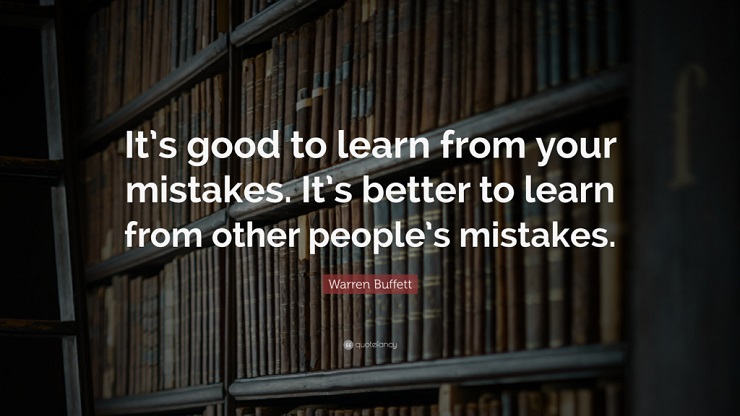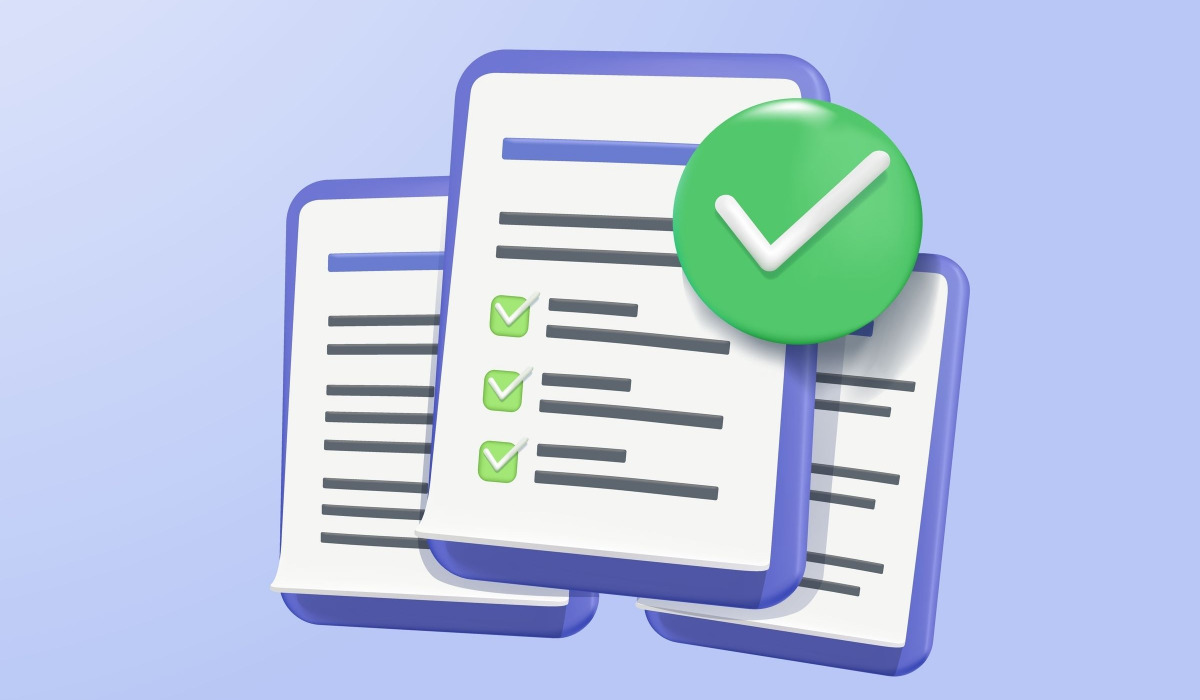When I started Foundr back in 2013, it was my first business. I had a day job, and knew nothing about building apps, publishing, team-building, entrepreneurship at all, for that matter. If there’s one thing that’s made all the difference since then, it’s been learning from mentors.
That’s been the one powerful constant. I’ve always had mentors around me to guide the direction of my business, and it has been incredibly helpful.
I strongly agree with one of my favorite quotes from Warren Buffet, that if you want to build a successful business, “It’s good to learn from your mistakes. It’s better to learn from other people’s mistakes.”
In this article, I’m going to be sharing with you exactly why mentors are so extremely powerful, and how I’ve taken great advantage of this to consistently level up as an entrepreneur.
If you want to build a successful business, I believe having mentors is extremely critical to getting there, and also getting there faster, which is what we all want to do. Here’s how it’s helped me.
Why Entrepreneurs Need Business Mentors
Why exactly do entrepreneurs need mentors? Why can’t a smart person with a great idea do it on their own?
If somebody has been down the path that you want to go down, if you can learn from them, you can gain all of the experience they’ve acquired over 10, 15, 20 years, which can help you in such a massive way. It can save you so much heartache, and help you build on what others have accomplished before you. This is how all great things have been achieved throughout history.
Because of this, I believe 100% that you should have a mentor, regardless of what kind of business you’re building. Now, is it possible to build a successful business without a mentor? Yes, it’s possible. However, in my experience, it’s going to cost you so much more heartache and torment, and there’s a better chance you’ll completely bust if you try to do it alone.
But I’d like to make one thing clear up front—business mentors can take many different forms. If you’re imagining a Mr. Miyagi or Yoda kind of situation here, it doesn’t need to be anything nearly as rigid or narrowly defined.
You can find mentorship in books or in podcasts. You can pay for mentorship, or you can get to know people who you just kind of naturally learn from over time. If I meet someone who’s had incredible success, but isn’t learning directly from a mentor in their lives, I find they’re always reading books, taking courses, or other such activities that serve a similar purpose.
How I Found My Mentors, and How They’ve Helped Foundr
I’ve learned some big lessons when working with mentors in my own career, and I am so grateful for the advice they’ve provided. Here’s how I found them and how they’ve helped build the company.
In-Person Mentors
Here’s a fun story you might not know—in the very early days of Foundr, we were sued for trademark infringement! It was absolutely crazy and happened within four months of starting the company.
That was one of the hardest times I’ve ever experienced. Imagine you have this dream and you finally start up a business, and all of a sudden, someone comes after you. And this was a huge company, another magazine that dwarfed our tiny digital publication. I was stunned and in a panic.
My first and only thought at that time was, “How the hell am I going to get out of this?”
I was lucky enough to still be working for a company where the CEO knew about the business I was starting up on the side, and he thought it was awesome. He was really supportive when I first told him about it.
So when the problem arose, I had that relationship with my boss and I could turn to him for help. I asked if he could give me any advice, and he really helped me work through the lawsuit. If I didn’t have him as a mentor, starting from before I ever even started a company, who knows what I would have done? What would have happened to Foundr, or my brand new career as an entrepreneur?
Not only did I figure out how to handle the situation, it was actually an incredible experience. A huge learning opportunity that I’m forever grateful for.
Where to find in-person mentors:
Even if you don’t have a supervisor or former boss to ask, consider looking to friends, family, friends of friends, or even further out in your own network. You can also consider reaching out cold to someone who may have had business success and followed a journey similar to your own. That person may even become a friend at some point, and we all could use more of those in entrepreneurial life! Either way, the key is the concept of not rushing up to them and asking for help. Use the strategy of “serve first, ask later,” which I’ll explain a bit more below.
Industry Experts
Again, a business mentor doesn’t necessarily have to be someone who is personally in your life. Especially with all the new forms of digital media, we now have unprecedented access to what’s going on inside the heads of industry experts. The classic example here is by listening to podcasts. I love listening to podcasts, and so many brilliant, experienced people have podcasts where they share their latest insights and stories, and you can gain tremendous knowledge by listening to them.
I listen to Russell Brunson’s Marketing Secrets podcast regularly. It was here that I picked up the idea of printing magazine issues and giving them away for free. In our case, Foundr Magazine is typically digital only, but we decided to take some of our most popular stuff to date and package it up in a beautiful print issue. This is our “Branson Issue,” which highlights one of our most beloved interviews, with Sir Richard Branson. We give the Branson Issue away. We print it, we give it away for free, and people just have to cover shipping and handling. We’re moving thousands of copies of this magazine per month, and it’s excellent exposure for the brand.
So I’m learning from Russell Brunson and others like him every single day by listening to their podcasts, picking up all of their ideas, strategies, and things they’ve learned on their own entrepreneurial journeys. That’s incredibly powerful, and it’s helped Foundr in a very, very big way.
Where to find industry experts:
These are generally any people who are domain experts, who you can learn from them via podcasts, books, or blog posts. There are so many different podcasts out there these days, and the way that you can get started is to just go to the business section of whatever service you use. If you want to find books, go to Amazon and read the reviews. And you can often find potential mentors by browsing blog posts. Don’t underestimate the help that a good blog post can provide. You can get started right here on the Foundr blog by searching “top 10 business blog posts,” for example. The best way to find industry experts is to just absorb the content in your industry and follow the experts you feel can help you level up your business.
Paid Mentors
Another option is to simply pay someone for their time. There are a few different ways you can pay for someone’s help as a mentor. One popular route is to use a coaching service, such as Clarity or Coach.me. Or you can pay someone directly for coaching or consulting work. That’s something that I do. So I have an incredible mentor named Mitch Harper, who I turn to often. I pay a monthly fee to get access to Mitch and I found him after reading his blog on Medium.
One great example of this is from when we were first looking to scale up our online course offerings at Foundr, an ongoing project for us. When we were first expanding, I found an expert named Zack Kinslow who was really good at this kind of thing, with a lot of past experience creating educational courses at scale with influencers. The problem was, at the time, we couldn’t afford to hire him. Mitch suggested that we first work together on a test project, and if he smashed that job, we could bring him on full time when we were ready.
That’s exactly what we did, and it worked out really well. Zack is now working with us to roll out the next 12 online courses over this year, which are going to be incredible. I doubt we would have pulled that off if it weren’t for Mitch’s guidance.
Where to find paid mentors:
If you’re looking for someone you can pay, like a coach or consultant, check out services like Clarity or Coach.me. Also, when you’re looking for that free knowledge via blog posts, podcasts, and books, some of these people might actually offer coaching or consulting. You can always reach out and ask. Let them know you’re willing to pay and not just looking for freebies.
—
These are just some of the ways I’ve used mentors to help guide me along my journey in building Foundr. Even though my experience in business was limited, especially starting out, I’ve had help from people who have built eight- or nine-figure businesses. I not only learn from their mistakes, we also work on developing strategies that are often far better than I could come up with myself.
In fact, I’d say it’s a common mistake to think that mentors are only useful at certain stages or for certain entrepreneurs. Truth is, there are many times when you might look to a mentor, and you might take different approaches depending on where you’re at.
When to Start Working With Business Mentors
Let’s take a look at a couple of main stages of business growth and how mentors might help you out at each one.
Early Stage
Early in your entrepreneurial journey, you’re really trying to find your first product-market fit, as defined by Eric Ries and Steve Blank in the Lean Startup methodology. You’re looking to find an idea or a problem you’re going to solve and then validating it. In other words, you’ve got to figure out if people are going to pay for something you’re planning to offer.
At this stage, it can be hard to find a mentor, because you haven’t done much that would encourage a more senior person to invest time in you. You also probably don’t have much money to pay for mentorship. That’s why we are such big proponents of just getting started as an entrepreneur. Prove that you’ve got some hustle, some drive, and some chops. Get yourself on the map, even with a very small win.
There are exceptions, however, such as accelerators and incubators, which have mentorship and training baked into them. But these can be quite tough to break into, very competitive.
Of course, at every step of the way, you can always read books and listen to podcasts. That’s especially true early on. There’s a book for every step of the way. There’s also a podcast on every topic you can imagine, plus other free content from brilliant thought leaders. If you don’t have money to invest in a mentor, that’s fine. Seek out knowledge wherever you can.
Scaling Up
Now let’s say you’ve validated your business, got a little momentum, and you’re ready to really step things up. For me, this was the period when I had left my day job and was starting to make some full-time and contract hires to expand Foundr beyond just the digital magazine. It’s the time when you’re making some sales, getting your footing, but maybe you want to dial it up and build a larger business.
Once you get to that stage, to level up, I really believe you need a mentor. To take a good idea and turn it into a multimillion-dollar business, you need advice from people who know what they’re doing. This is a really important time to start bringing in people to guide you throughout your journey.
That means getting out there and talking to people, building relationships, and very likely paying for some guidance. But I’ve pretty much always had mentors that I do not pay, and some of them are my most trusted and valuable supporters. You really can’t find someone like that unless you start getting out there and connecting with people.
How do you do that? This is where the idea of “serving first, asking later” comes into play.
How to Connect With a Mentor: The Power of Serving First and Asking Later
One thing that I think is incredibly important when it comes to establishing and maintaining relationships with mentors, is to understand their perspectives and why they would be interested in helping you.
Imagine for just a minute, you’re a busy, highly successful person facing an endless list of daily demands. Are you going to help out a random stranger with their business, just out of pure, blind altruism? Maybe if the timing is really good, but probably not. Mentors need to have a reason to engage with you, specifically.
The golden rule when it comes to networking and meeting mentors takes this very consideration to heart. It goes like this: Serve First; Ask Later.
Whenever you’re starting up a mentor relationship, maintaining a relationship, or just striking up a conversation with a potential mentor, you must always approach things from a mindset of giving. That means giving without the expectation or anticipation of receiving anything in return. Do this, and you’ll always be growing your network and adding amazing people to your community.
Since I’ve started Foundr, I’ve always made it a point to introduce people and help them out however I can—serving all the time. It’s not only very enriching to see people grow and prosper as a result, but it also organically comes back around many times over in the form of mentorship and assistance.
Not sure of how you can serve first and ask later? Here are some examples:
- Does this person have a typo on their website? Can you politely point it out? Got any other chops with design, coding, or editing you might offer for free?
- Can you introduce this person to anyone you might know who could help them with something to help their own business grow? Do you know a great PR person? Do you know an expert or someone in their field who can help with a partnership deal?
- Have you purchased their products or services and can give honest, helpful feedback? Customers always get great treatment!
- Does this person do consulting? Do they have an hourly rate? Are they on Clarity? One simple way to give first is to pay! Paying for someone’s time can be more than worth it, considering it might change the course of your business.
- Can you offer someone a simple gift? A coffee? Lunch? A book they might like?
Have Something to Show
Along very similar lines, you’ve got to show your potential mentor something that will distinguish you from the pack. You’ve got to make it clear that you’re worth their while.
It’s very difficult to get someone to take you seriously if you have no product, nothing launched, and just an idea. Again, put yourself in their shoes. A successful person is going to be extremely wary of wasting time on someone who is not likely to take action. There are countless people out there with half-baked ideas, asking around for help and advice, who are ultimately never going to do anything.
You have to prove that you are not one of them and that you’ve got initiative and something to show for it.
Here’s an example of an email I would send if I wanted to reach out to someone:
Option 1 Subject: <Insert Name> we need to talk….
Option 2 Subject: Greetings 🙂
Option 3 Subject: gift for you (Note: If you use this subject line, open the email conversation with questions to find out the best place to send / give someone your gift.)
Hey <Insert Name>,
I hope you’re doing well! Just wanted to reach out and say I’m a massive fan of everything you’ve accomplished at <INSERT COMPANY>.
<INSERT SOMETHING AWESOME YOU’VE DONE FOR THIS PERSON> (serving first and asking later)
I’ve recently launched <INSERT COMPANY and what you do>, so I’m on a similar journey and it would be fantastic to catch up over coffee or lunch, my treat.
Please do let me know if there is anything else I can do to help you out.
Speak soon,
Nathan
Massive Don’ts When Looking for a Mentor
- Don’t ask someone if you can pick their brain. Big no no. If you ask someone something like this, it’s basically asking how you can extract everything they’ve learned over their years of experience and hard work. This just oozes with “what can I take from you.”
- Don’t ask someone to be your mentor. This is something that really turns people off. No one wants to be asked this question, nor would they feel they necessarily want that responsibility. When looking to start a mentoring relationship, always treat it as if you’re making friends with someone. You would never ask someone, “Will you be my friend?” It’s just awkward. Instead, take an attitude of, “I appreciate everything you’ve accomplished, and it would be great if you could guide me here and there.”
- Don’t ask to catch up with this person for 1-2 hours. Successful people are time poor, so always be super respectful, even asking for just 15 minutes at a time or allowing them to set the time period. Expecting someone to give up a huge amount of their time is not respectful.
Business Mentors Are A Powerful Component of A Company’s Success
So that’s it, guys. Long story short, I cannot stress enough how important it is to interact with mentors at every step of the way on your business journey. It’s an extremely powerful component of business success, and I hope this article has given you some advice on exactly how to find and acquire mentors.
And remember, always be respectful of that person’s time, whether that means paying them, giving gifts, or helping them with their own business. Serve first; ask later!
Any great stories of how mentors have helped you? Any difficulties with finding a mentor that I can help you overcome? Let us know below!

















